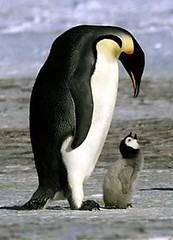
![]() Photo credit: pixie_bebe
Photo credit: pixie_bebe
It seems that the penguins can’t adapt to changing conditions and climate, by altering the timing of their breeding cycle for example. "Unlike some other Antarctic bird species that have altered their life cycles, penguins don't catch on so quickly," Stephanie Jenouvrier said. "They are long-lived organisms, so they adapt slowly. This is a problem because the climate is changing very fast."

Recommended Comments
There are no comments to display.
Join the conversation
You can post now and register later. If you have an account, sign in now to post with your account.